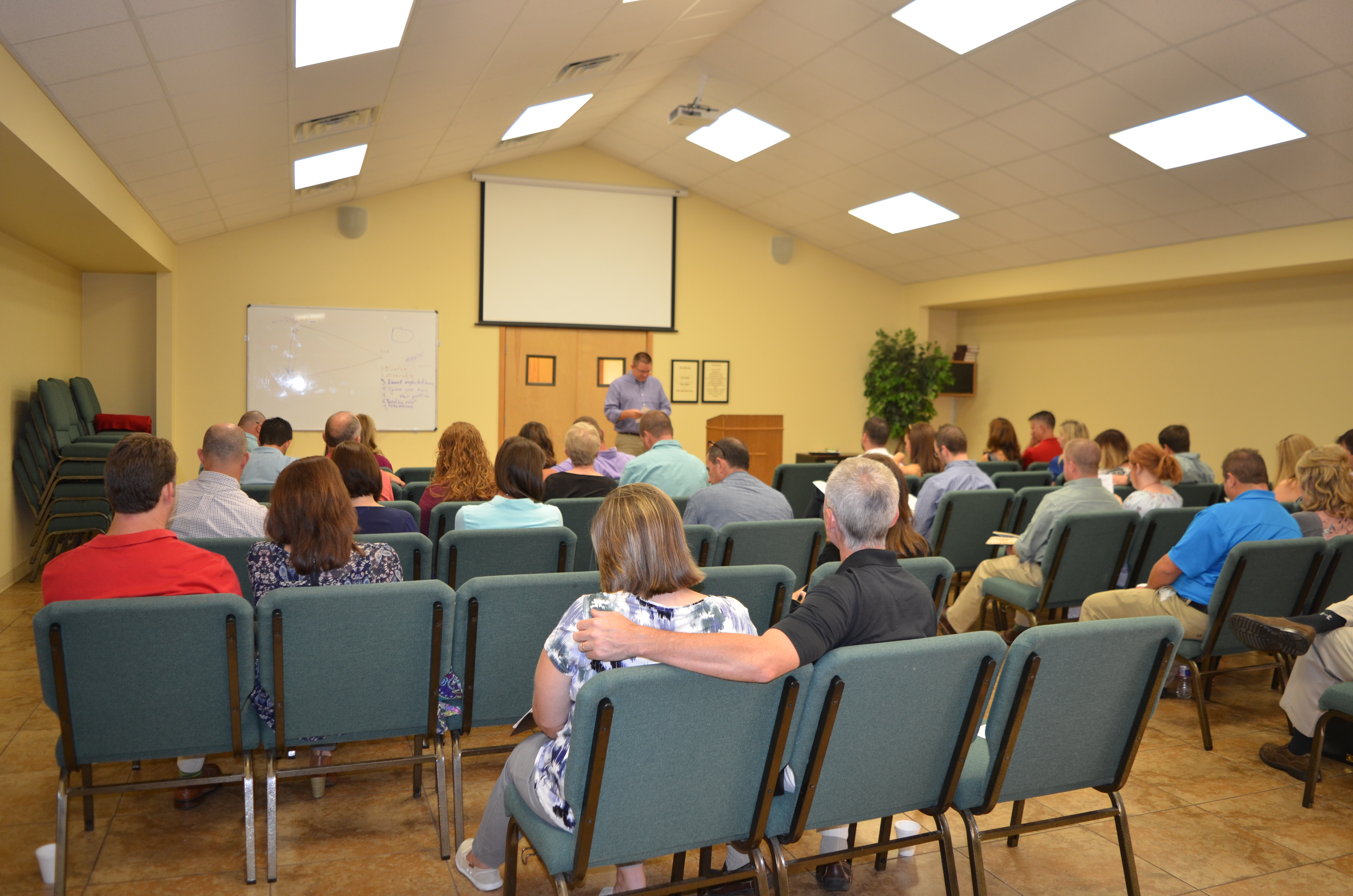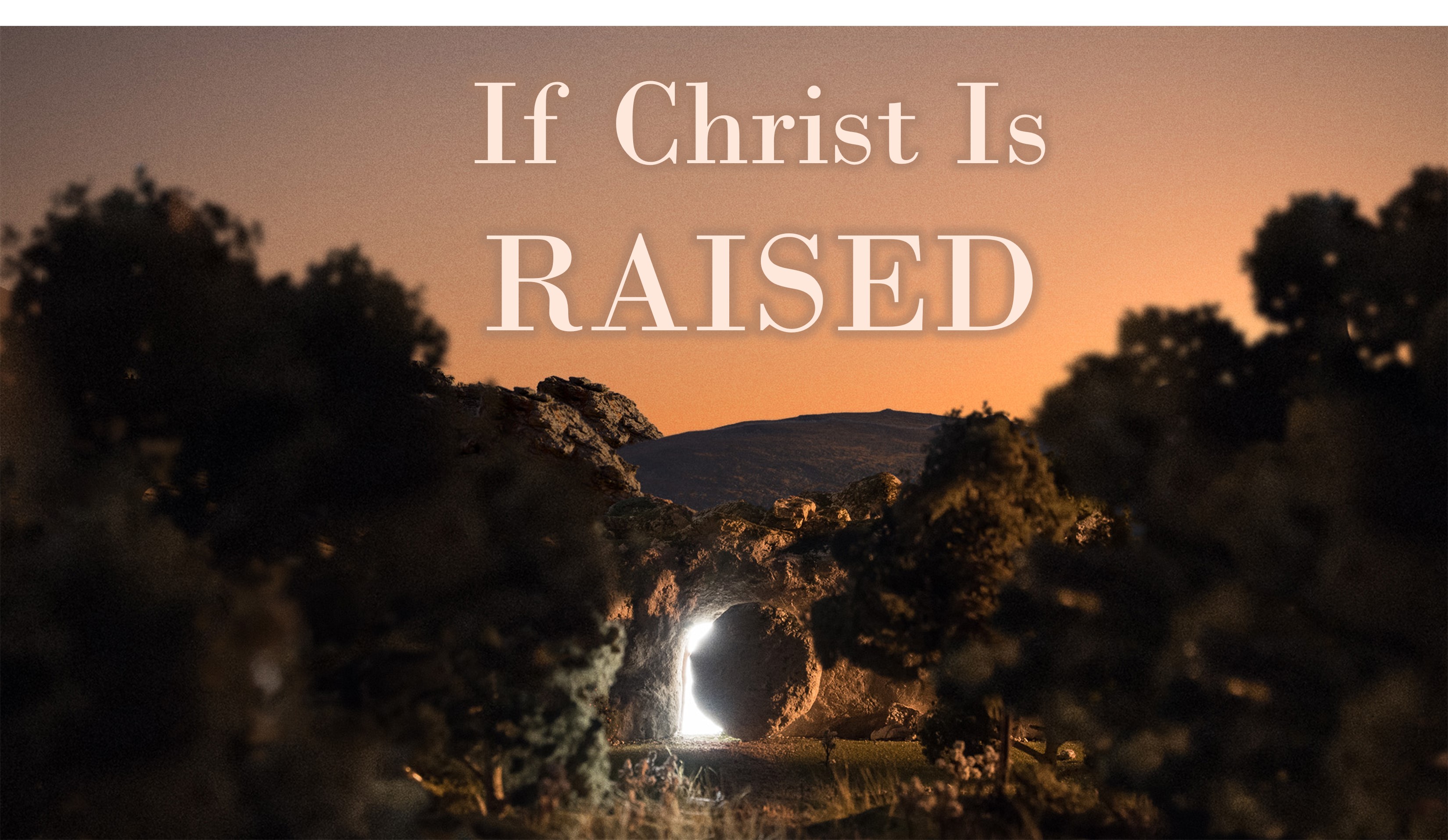Blog
M. W. Bassford
Are You the Antichrist?
Monday, March 14, 2022
The title is kinda clickbaity, I admit. However, I claim 1 John 2:22 as my justification. The Holy Spirit uses the definite article, and who am I to argue grammar with the Holy Spirit?
Mention of the antichrist these days directs the minds of many religious people toward the tragedy unfolding in Ukraine. As always whenever there are wars and rumors of wars, they become convinced that the end times are upon us and start trying to map current events against the apocalyptic imagery of Biblical prophecy. Surely the ten horns of the beast are ten Russian oligarchs, and its seven heads are the seven branches of the Russian armed forces, amirite?
One of the favorite passages of these enthusiasts is one of the least favorite passages of careful Bible students, the description of the man of lawlessness in 2 Thessalonians 2. Candidly, I have no idea who the man of lawlessness is, and there is no Scriptural way to tell. However, this does not deter them from applying the passage to their least favorite world figure, which could be anybody from the pope to Vladimir Putin.
Somewhere along the way, this baleful character got mixed up with the Johannine antichrist. Nowadays, if you mention the antichrist to somebody, they probably will envision a boy with a demonic grin and eyes that glow red. He’s the capital-A Antichrist!
However, the true nature of the antichrist is much different and more straightforward. John tells us plainly in the abovementioned verse that the antichrist is anyone who denies the Father and the Son. You don’t have to be conceived at a witches’ Sabbath in the dark of night to qualify; you only have to be anti-Christ. John notes in v. 18 that there are many such people.
We can be one of them. Like the apostates of v. 19, we can reveal ourselves as antichrists by going out from the people of God. It’s tough to argue that you have not denied Christ when you have detached yourself from His body!
However, on the terms of v. 22, we can keep showing up and be the antichrist anyway. If we deny God when we aren’t assembled, the things we say for a few hours a week don’t count for much.
The number of ways we can end up in this trap is limited only by the ingenuity of the devil. Confessing that Jesus is the Christ is a consequential statement. It means that we claim Him as our Lord and maintain that He ought to be everybody else’s Lord too.
What, then, when His Lordship is not evident in our words? We downplay His control over our lives because we don’t want our worldly friends to think we’re Bible-thumpers. We tell them that they’re just fine outside His church because we don’t want to start an uncomfortable conversation. That isn’t exactly pro-Christ behavior!
So too, we become the antichrist when we deny Him with our actions. If Jesus is Lord, we must live like it. If we don’t, we reject His Lordship, and those around us will hear our denial loud and clear.
The antichrist isn’t a trope for Christian-ish horror movies or wild-eyed would-be prophets. It’s a sober warning for us. We are responsible daily for lifting up the name of God. When we do the opposite, John wants us to understand the seriousness of the step we have taken.
My Take on Bible Classes
Friday, March 11, 2022
There’s no doubt that I’m a better teacher than preacher. My first love is the lectern rather than the pulpit, and I “get” teaching Bible classes in a way that I’ve never gotten preaching sermons. Also, I’ve always been satisfied with the way my Bible classes have gone. Generally, they’re characterized by robust discussion, and interesting insights come from many participants.
However, I know that many have a much different experience teaching Bible classes than I do. Comments are hard to come by, their content is poor, and each class leaves the teacher frustrated and unfulfilled. I thought it would be worthwhile, then, to explain my approach in the hope that it might help others.
Believe in Your People
I come to every class assuming that the students collectively know more about the Bible than I do and are wiser than I am. Their biggest problem isn’t ignorance and foolishness; it’s insecurity. They are not confident in their ability to figure out the text for themselves.
I am! I believe that God’s word is for God’s people. If a group of earnest Christians can’t work its way through a passage and arrive at sound conclusions, our whole theory of religion is wrong. The narrative of the class is their journey of discovery, not my sermon masquerading as a Q&A.
Help Your People
I’ve had a lot of training in how to read and interpret texts. Most brethren haven’t. When presented with an open Bible, many of them will get a deer-in-the-headlights look. Remember: they can do this! Your job is to show them how.
The most important work of the Bible-class teacher is to guide the inquiry of the student. When you help them work through a text, they learn not only what the text means but also how to work through a text for themselves. To this end, I always teach using a workbook I’ve written, even if the class is a textual study. The workbook frames the discussion, not by offering the right answers, but by offering the right questions.
Sometimes when I’m teaching a class, the blank stares of the students tell me that I’ve asked the wrong question. Probably, I’ve skipped some analytical steps, which is a great failing of mine. Then, it’s my job to work back, to find the right question that will get their analysis of the passage started.
Trust Your People
If the teacher is doing their job right, the class should arrive at conclusions that are different and better than the teacher’s own. I enjoy teaching classes in part because I like learning from the class. If the teacher isn’t interested in learning, the class will sense this and let the guy seated in the chair of Moses do his own talking!
This means that the teacher must be willing to allow exploration in different directions and, especially, to deal respectfully with disagreement. I assume that if somebody is willing to take the relational risk of disagreeing with me in public, they probably have a point. I’ve overstated my case or missed something. In such cases, I strive to reformulate their objection better than they did as a way to locate the flaw in my own thinking. If the teacher treats the objector kindly, thoughtfully, and fairly, they generally will be satisfied with the exchange, though it never hurts to check with them after class to make sure.
Conclusion
Sad to say, many congregations have Bible classes that are boring and frustrating. This is a terrible shame and a waste of a shining opportunity. The folks in the pews can do a little bit to fix this, but mostly, it’s the role of the guy up front. When we teach with the right approach and attitude, we can build a culture of good Bible classes that show everyone what it means for us to be people of the Book.
Why Were the Disciples So Sure?
Tuesday, March 08, 2022
One of the most significant proofs of Jesus’ resurrection is the early disciples’ sincere belief that He had risen. They maintained this belief in the face of great hostility from earthly powers, enduring persecution, prison, and death rather than recanting. Whatever else they were, they were not deceivers.
However, we also must ask why they were so sure that the risen Lord had appeared to them. Many of us have had a hallucination at some point in our lives (I have), and the ancients were aware of hallucinations too. If I were standing before the Sanhedrin, I’d want to be really, really sure that my mind wasn’t playing tricks on me before I spoke up!
One of the most elegant Biblical explanations of the disciples’ certainty appears in 1 John 1:1-2. John probably wrote these words to contradict the Gnostic claim that Jesus did not come in the flesh, but they serve just as well as a defense of the resurrection. They didn’t glimpse the risen Jesus at a distance or see Him early in the morning when they were fuzzily waking up.
Instead, they heard Him. They saw Him. They studied Him intently. They touched Him with their hands. Their testimony isn’t based on wishful thinking. It’s based on the firm experience of their senses.
A study of John’s gospel reveals some of these experiences. John watched as a Roman soldier plunged His spear into Jesus’ side, and the corpse didn’t even twitch. He looked into the tomb where Jesus had been laid and saw discarded grave wrappings but no body. He heard Mary Magdalene relate that she had laid hold of the feet of the risen Jesus as she worshiped Him. He was in the locked upper room when Jesus appeared in the midst of the disciples and displayed the wounds in His hands and side for their inspection. He watched later when Thomas reached out and touched those wounds. He ate breakfast with Jesus as the sun rose over the Sea of Galilee.
To summarize, John had all the evidence he needed to be 100 percent convinced that Jesus was a real human being who really died and really was restored to life by God. So did the others. They knew this had happened.
In an earthly sense, their experience did them no favors. It set them against all the rulers of their world, men who were determined that Jesus had not risen and were indifferent to the evidence. Without the resurrection, they could have lived ordinary, peaceful lives. Because of it, they were hounded to the end of their days.
However, it also gave them the most precious hope imaginable. If Jesus was raised to life, they could trust His promise that they also would be raised to life through Him. Because of their steadfastness in testifying to their experiences, we can trust it too. Next to this, nothing else matters, either to them or to us.
Consistent Conservatism
Thursday, March 03, 2022
It should come as a surprise to no one who reads my writing that I am very conservative in my approach to religion. I put my trust in the word of God. I believe in following the first-century pattern for the church. I am deeply suspicious of human wisdom and human innovation, and if you want me to accept that the church should do something or spend its money in a certain way, you’d better have Scriptures to back that up!
I find this approach to be logically satisfying because it relies on that which can be proved, can be demonstrated, from the text. I am no less suspicious of my own judgment than I am of anyone else’s, and it protects me from following that judgment into error.
Indeed, I believe this same method is useful not only when it comes to “Bible authority” (I speak accommodatively; nothing in the life of humankind is outside the authority of the word of God) but also when it comes to matters of personal morality. There too, we ought to be circumspect, to be wary of speaking where God has not spoken, and to test every conclusion to make sure that it is founded on the Scriptures.
Interestingly, such circumspection is not what commonly is described as “conservative” among the churches of Christ. Instead, for some reason, conservatives are those who read Scriptural prohibitions on conduct very broadly and rely heavily on their own judgment in drawing conclusions. To us, the conservative is the one who measures necklines and hemlines with a ruler, condemns attending a prom as sin per se, and argues that it is sinful for Christian women to work outside the home.
I believe that such brethren hold their views in good conscience, as do those who accept church support of colleges or use the instrument in the assembly. However, sincerity is no substitute for sound Scriptural reasoning.
In order to reason soundly, we first must test all inferences. There is a vast world of difference between the inference that can be drawn and the inference that must be drawn. It is possible to infer from James 1:27 that churches are authorized to support orphans’ homes. However, the inference is not required. Indeed, the language that James uses points toward an individual rather than a congregational application.
So too, it is possible to infer from 1 Corinthians 6:19 that smoking is a sin. My body is a temple, smoking is bad for the body, so smoking is wrong. However, once again, it is not an inference that the text demands. Contextually, Paul is discussing not physical health but sexual immorality, and it is immorality that he says defiles the temple.
Second, we must be wary of citing convenient passages from the Old Testament as authority. It’s perfectly reasonable to use Proverbs 23:29-25 to argue that drinking alcohol is unwise. However, using the text to establish that drinking alcohol is sinful is problematic. Once we establish that precedent, we open the door for the argument from Psalm 150 that the use of the instrument in worship is acceptable. If indeed the old covenant was nailed to the cross with Christ, we can’t detach it from the cross whenever it makes a point we want to make.
There, of course, is where the problems arise—when we go beyond the Scriptures to reach a conclusion we want to reach. This is certainly what lies behind departures from the text in the realm of the work and worship of the church. Somebody wanted to do a “better” job of spreading the gospel, so they came up with the missionary society. Somebody else wanted song worship to sound “better”, so they added the instrument.
So too, we must beware of wanting so strongly for our brethren to make wise choices that we overlook the distinction between foolishness and sin. I think smoking is unwise, but it is not my place to force my conclusion on the Christian who smokes. I think some Christian women regularly show poor judgment in the way they dress, but I must acknowledge that the Scriptures give them the right to judge for themselves about clothing.
This does not mean that we can’t try to persuade others to our way of thinking, but “This is sin,” isn’t persuasion language. That’s coercion language, and it reveals that we have seated ourselves in the chair of Moses.
Principled, consistent conservatism is difficult. It is frustrating to look out at the world (and the church) and see so many problems we could “fix” by going beyond what is written. However, we must remember that even the foolishness of God is wiser than our wisdom. If we trust Him and hew strictly to His commandments in all things, we will find blessing in ways we had not foreseen.
If Christ Is Raised
Wednesday, March 02, 2022
In our preaching and teaching this quarter, we are focusing on devotion to the apostles’ teaching. Last week, Clay observed—and correctly so—that the essence of the apostles’ teaching is that Jesus was raised from the dead. Through the early part of Acts, it seems like Peter and the rest can’t hardly get two words out of their mouths without referring to the resurrection in some way.
The apostles didn’t spend so much time on it because the resurrection was fun to talk about. Instead, it is nothing less than the most significant event in human history. It’s significant for the way we live. As Clay pointed out, we disciples live a resurrected life that is dramatically different from the life of the worldly.
However, the implications don’t stop there. The resurrection doesn’t only change our attitudes and behavior. It transforms the way we understand reality. Everything about human existence is different because of the resurrection. I know this is a huge claim, but the Scriptures bear it out. This morning, then, let’s consider only some of the implications if Christ is raised.
The first of these is that HE IS A TRUE PROPHET. Consider the test of Deuteronomy 18:18-22. Though this test is inspired, we could arrive at the same conclusion using common sense. We can know that a man speaks for God if he correctly predicts the future.
After all, we can’t do that. Weather forecasters with advanced degrees and massively complicated computer models can’t even tell us if it’s going to rain next Thursday! If somebody does correctly predict the future, especially in a specific and unlikely way, it validates his claim to be God’s prophet.
Jesus did exactly that when He predicted His own death, burial, and resurrection. We’ve talked about how prevalent the resurrection is in Acts. The funny thing is that it’s nearly as prevalent in the gospels. Jesus is constantly telling people that He is going to rise from the dead, directly, by implication, and by metaphor. Even His enemies knew that His own resurrection was a big part of His teaching.
In rising from the dead, Jesus confirms His own predictions, passes the Deuteronomy 18 test, and proves Himself to be a true prophet. Thus, the rest of Deuteronomy 18 applies. We must accept that Jesus speaks for God, and we also must hear God’s warning that He will hold accountable everyone who does not listen to Jesus.
This has immense significance for the way we read the gospels. The God who raised Jesus from the dead surely also would safeguard the words of His prophet, so we can be confident that the gospel accounts of Jesus’ teaching correctly represent that teaching. If Jesus said it, we are right to believe it, and we must obey it.
This has many implications, but one of the most important is that JUDGMENT, HEAVEN, AND HELL ARE REAL. We see this in many places in Jesus’ teaching, but Matthew 25:31-46 brings all three together. We don’t have time to delve into the subtleties of this passage, but its broad outlines are simple and clear. The day will come when Jesus will judge the nations according to their works. This judgment will vindicate the righteous, and He will invite them into eternal life. However, it will condemn the wicked, and He will send them away into eternal punishment. Because of the resurrection, we know that we can trust what Jesus says about the afterlife.
Brethren, this conviction transforms my life right now. Because I know that my time on earth is comparatively short, I naturally spend a lot of time thinking about what will happen next. Are the atheists right, and I am about to be as permanently dead as my grandfather’s dog? Is some other religion right, and I should have been giving my allegiance to Mohammed, Krishna, or some other mystical figure? Or, instead, can I continue to rely on the Lord I have served all my life?
The resurrection answers these questions for me. Because Jesus rose, I can know that what He has said will happen, will happen. Thus, even though I am dying, I can and must continue to live with purpose. I inevitably will stand before the throne of God and give an account, so I’d better get ready for it! Similarly, the most important thing I can do with my time is help others get ready to give their account. I can’t give up now because the resurrection fills every day I have left with profound meaning.
Finally, if Jesus rose, LIFE IS ONLY POSSIBLE THROUGH HIM. Consider His words in John 14:1-6. This passage reaffirms what we saw in Matthew 25. Currently, Jesus is preparing an eternal home for the righteous, where they will dwell eternally with God.
So far, so comforting, but Jesus’ next words are shocking. Indeed, billions of people would find them infuriating and offensive. The only way into eternal life is Jesus. Apart from Him, no one is going to reach that heavenly dwelling place with God. All those other holy figures are liars and frauds. They have nothing to offer us. Similarly, atheists are murderers. Everyone who listens to them will pass into eternal death instead.
Among other things, Jesus’ words here are an affront to our society that prizes tolerance above all else. No, you can’t be transgender and hope to inherit eternal life. Jesus says that God created them male and female. No, you can’t get unscripturally divorced, remarry, and pretend that you’re righteous. Jesus says that’s adultery. No, you can’t call Jesus “Lord”, refuse to obey Him, and act like it’ll be good enough. Jesus will tell you that He never knew you. He is the way, the truth, and the life, and there is no other.
In short, Jesus’ words allow no room for compromise. Either you are with Jesus in everything, or you are against Him and on the fast track to eternal disaster. This is a hard saying indeed! We don’t like people who say to us “My way or the highway,” but Jesus is the ultimate in my-way-or-the-highway. However, this ideologue, this tyrant who wants to control every aspect of our lives, is also the One who rose from the dead. We obey Him because of the resurrection. We have no other choice.


